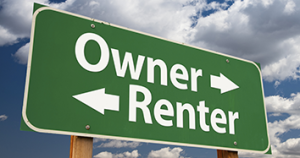
Recently the Bank of England warned that the influx of people investing in the buy-to-let market posed a risk to the financial stability of the country, increasing house prices and reducing the number of homes available for first-time buyers. The Government has taken some measures to address this issue in yesterday’s Summer July 2015 Budget which will have a major impact for all kinds of landlords from social housing to multiple occupancy and investors in the buy-to-let market.
Tax relief on Buy-to-Let mortgages. The Government has restricted the amount of Income Tax relief landlords can receive on residential property finance costs (such as mortgage interest) to the basic rate of tax. To give landlords time to adjust to this new legislation the government will introduce this change gradually from April 2017 over 4 years.
This may impact people who have saved hard and invested in property to supplement their retirement income. The phasing of this change is important and rents may increase for tenants passing on the higher tax costs to their rental payment. Noting that Landlords who invest through limited companies should be able to avoid the new personal tax increase, it remains to be seen if this will impact on the way the buy-to-let market will be structured going forward for the higher-rate buy-to-let landlords.
Wear and Tear Allowance change from April 2016. From April 2016 the ‘wear and tear allowance’ which allows landlords to reduce the tax they pay (regardless of whether they replace furnishings in their property) will be replaced by a new system that will only allow landlords to get tax relief when they actually replace the furnishings.
Insurance Premium Tax Increase from 6% to 9.5% as from November 2015. This will have an effect on landlords insurance and Rent Guarantee Insurance premiums.

Rent-A-Room Scheme Tax free income to go up from £4,250 to £7,000 as of April 2016. The increase in the rent a room allowance, after a period of almost 20 years, will help households wishing to rent out spare bedrooms. This also increases the level of tax free income if an individual rents out rooms in a guest house, bed and breakfast or similar, providing that it is their main residence.
This may have potentially huge implications on affordable rented accommodation. With an estimated 19m empty bedrooms in owner-occupied properties in England; freeing up just five per cent of those rooms would accommodate almost a million people. Lodger landlords can earn, on average, £8,335 per year in London, and £6,071 across the rest of the UK.
Corporation Tax to reduce from 20% to 19% by 2017 and 18% by 2020. Note: If your investments are made using a company vehicle, it may be well worth looking at the way you structure your investments, as you could end up paying more tax than you currently do. A question arises from this change in corporation tax: will there be a shift of ownership structures for landlords?
Benefits Cap Reduced to £23,000 in London and £20,000. Also Rents paid in social housing sector will be reduced by 1% per year for four years. Working age benefits will be frozen for four years – including tax credits and local housing allowance. 18-21-year-olds will not be entitled to claim housing benefit automatically, with a new Earn to Learn obligation. The impact of these changes for LHA landlords could be immense.
Inheritance Tax Increase in inheritance tax allowance by £175,000 per person if they leave their home to children or grandchildren. Many believe that without this concession less property will have come into the housing marketplace in order to protect inheritance. The Government have also published details on the proposals of new Inheritance Tax rules for UK residential property held indirectly by non-UK domiciled individuals or by excluded property trusts.
 ..
..



